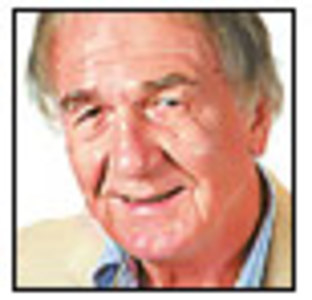Few Canadian political leaders have undergone as rapid a reversal of public fortunes as has Stéphane Dion in the less than three months since he became Liberal leader.
Comparisons have been made with Stockwell Day's spectacular fall after he became leader of the now-vanished Alliance Party. Day, though, while he did take a deep dive as soon as he put on his wet suit, never started out high.
Dion at his start was genuinely popular. People were intrigued by him.
Sure he was geeky, but he clearly was brainy. He possessed the especially attractive quality of "authenticity," of being someone who was real and who actually meant what he said.
His handicaps are now much more obvious.
On television, he just doesn't look like a leader. On both television and radio, his weak voice simply doesn't make him sound like a leader.
Dion has another handicap that everyone was aware of at his beginning but sort of assumed would go away by itself. This is that he's a Quebecer.
Dion's core problem may be that he's one Quebecer too many.
Since Pierre Trudeau at the start of 1968, the incumbent prime minister has been continuously a Quebecer, but for three short blinks (Joe Clark, John Turner and Kim Campbell), and now the hard stare being cast upon us by Stephen Harper.
Going back to Dion means going back to our past.
Dion especially reminds people of that past when Quebec issues dominated national politics because he is so clearly ill at ease in English – a rather surprising fact for someone who spent a decade in the cabinet in two senior portfolios.
Here, the inescapable unfairness in politics comes into play. As always, perception matters more than reality.
Dion, in fact, talks a good deal less about our past than does Harper. The issues he talks most passionately about are the environment and global warming, which are as today and as futuristic as political issues come.
Harper, by contrast, talks repeatedly about "open federalism" and "the fiscal imbalance."
The first of those phrases means Ottawa making Canada yet more decentralized by reducing its jurisdictional reach and pledging not to use its constitutional right to spend money in areas of provincial jurisdiction.
The second phrase means Ottawa handing over more dollops of money to the provinces and, most especially, handing over extra large dollops to Quebec.
If all goes well, according to Harper's scenario, there will be harmony and co-operation between the provinces and Ottawa for the next thousand years.
Of course, nothing of the sort will happen. In the meantime, though, Harper will – or may – have won enough extra seats in Quebec to win a majority in his next election.
That's a straight electoral bribe. No reason to be surprised or shocked about it in itself. Except that, to justify hurling money at Quebec, Harper has had to engage in all that stuff about "fiscal imbalance" and "open federalism."
He's had to, in other words, take us back to our past.
The result is that the provincial election that's just started in Quebec is mostly about Ottawa. Incumbent federalist Premier Jean Charest keeps saying how he, unlike pro-separatist Parti Québécois Leader André Boisclair, can get on with Harper and so can get goodies for Quebec, such as the $350 million extra spending on environmental projects that Harper has just announced.
Charest also makes much of the fact that Harper has declared that Quebec is a "nation." He's just announced that Quebec is going to host a conference of other "nations" (such as Catalonia and Scotland) by using the opening for Quebec to get into international affairs that Harper has also granted him.
Outside of Quebec, what Canadians want to hear being discussed is stuff like global warming. Instead, they keep hearing Charest talk about Ottawa and Harper talk about Quebec.
And who do they get mad about because of this? Dion, of course, because, even when he talks about global warming, he does so in a difficult-to-decipher Quebec accent.
It's quite crazy. But it's wholly Canadian.
Richard Gwyn's column appears Tuesdays. gwynR@sympatico.ca.





































Laissez un commentaire Votre adresse courriel ne sera pas publiée.
Veuillez vous connecter afin de laisser un commentaire.
Aucun commentaire trouvé